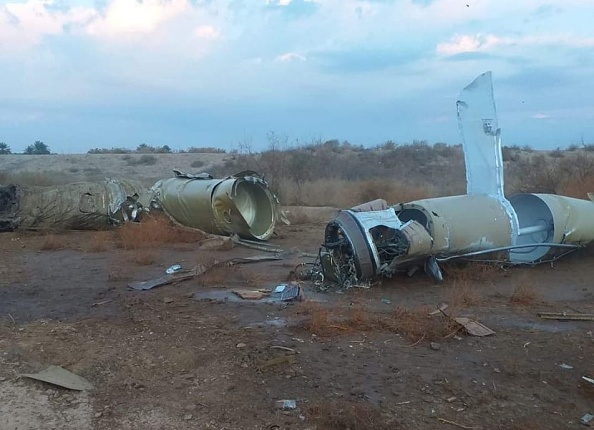While most Republican members of Congress have praised Trump’s action last weekend, Democrats displayed much more mixed responses. Most agreed that Soleimani did have blood on his hands, however, many would also say that his assassination could potentially drag the US further in an armed conflict with Iran. Democratic Presidential hopeful Bernie Sanders even echoed the ghosts from the Iraq war, which caused the deaths and displacements of hundreds of thousands of Iraqis and 4,500 Americans, and emphasized how much more devastating a war with Iran would be. Shortly after the American drone strike, some major Democrats have called for legislation that would bring war authorization powers back into Congress. Such calls came amid the fact that Trump made such as drastic move without consulting any of the chambers of Congress, which is constitutionally illegal.
As such, Nancy Pelosi has recently announced that the House would vote on a War Powers Resolution aimed at keeping the President’s use of military force in check. Similarly, Democratic Senator Tim Kaine has also introduced a war powers resolution in the Senate. If this joint resolution passes, then Trump would have 30 days to end military action in Iran, unless Congress gives him the authority to use military force against the Islamic Republic.

TRUMP ACTING UNCONSTITIONALLY?
According to Article 1, Section 8 of the US constitution, Congress has the power to declare war and the next article states that it is then up to the President, as Commander in Chief of the military, to execute war and direct the military. Even though the President is the Commander in Chief, he or she does not have the authority to act without consulting Congress, the general exception to this is when the lives of American civilians are under imminent threat and the president has to act quickly to protect them. In spite of this, Congress has only formally declared war 5 times in its history. The more common course of action that Congress has taken to give the President war powers is the Authorization to Use Military Force (AUMF), when Congress does this it effectively abdicates its powers and grants the president permission to use military action and in some cases go to war without a formal declaration from Congress. Though the term Authorization to Use Military Force was technically used the first time in 2001 shortly after 9/11, the phenomenon has a historical precedent that dates back to 1798 during the US’s quasi-war with France. AUMF has also famously been used in 1964 to grant the US permission to become more directly involved in Vietnam. The resolution was put forward after attacks on two American Navy destroyers off the Gulf of Tonkin, gave President Johnson the military authority to “promote the maintenance of international peace and security in Southeast Asia”.
Technically, President Trump’s drone strike is unconstitutional because he did not consult Congress beforehand. Nevertheless, the precedent that the 2001 AUMF set has effectively given the President extra-constitutional powers in using military force. It is these extra-constitutional powers that both the Bush and Obama administration exploited to justify their use of drone strikes in the Middle East. If the joint resolution passes, then this might be a major step for Congress to regain its constitutional power to authorize uses of force. However, this is not the first time in which Congress has attempted to curb the president’s unauthorized use of military force.
WAR RESOLUTION ACT 1973
The last time Congress formally declared war was during World War II, since then the US has participated in many armed conflicts without a formal declaration of war from Congress. As previously stated, however, Congress has historically authorized the President to use military force whenever the former needed to justify going to war and the Vietnam War is one of the most famous historical examples. The US’s war efforts in Vietnam and Southeast Asia proved to be costly, and no prospect of a victory seemed to insight. When Richard Nixon became president in 1969, he began covert bomb operations in Cambodia, which he had kept secret from Congress for about the year. This incident, along with the Vietnam War, intensified public distrust in the government. As such, after the war effectively ended in 1973, Congress introduced and passed the War Powers Resolution, which would require the president to consult Congress before any military hostilities, and the president sends in the military to conduct an operation he would have to withdraw troops from the conflict within 60 days in the case that Congress did not declare war or authorize the use of force. Despite an attempt from Nixon to veto the resolution, it still passed and became enshrined in law.

DEJAVU?
Similar to Nixon and the secret Cambodia bombings, Trump conducted the drone strike covertly and without consulting Congress. In a similar vein, the Democrats in both the House and the Senate have responded to the operation and are seeking to regain the legislative branch’s power to check and balance the executive branch’s ability to go into war.
Senator Tim Kaine published the joint resolution which will be put to vote in both bodies of Congress. The resolution has emphasized that Congress has not authorized Trump to conduct the drone strike on Soleimani, The resolution also stated that making such a move without a proper debate in Congress was unfair to US military service members and other Americans whose lives are at risk from the hostilities between the US and Iran. It also cited the Department of State Authorization Act of 1984 and 1985 to justify the removal of US forces involved in hostilities overseas without the declaration of war or authorization of use of force. Furthermore, if passed Trump would have 30 days to remove US armed forces involved in hostilities against the Islamic Republic, unless, of course, Congress grants Trump permission to keep them either via a declaration of war or an authorization of the use of force.
WILL THE RESOLUTION PASS?
Back during 1973, the Democrats dominated both chambers of Congress and as a result they were able to pass it to the next stage (the president signing it into law). Even after Nixon vetoed it, the Democrats had enough members to overturn that veto. Given the fact that the Republicans currently outnumber Democrats in the Senate, it is unlikely to pass there and a passage in the House alone is not sufficient for it to go on to the next stage. Even if by some miracle the resolution passes in both chambers, then Trump will undoubtedly veto it. While this is a valiant effort from both Pelosi and Kaine, it will most likely not result in anything substantial.








